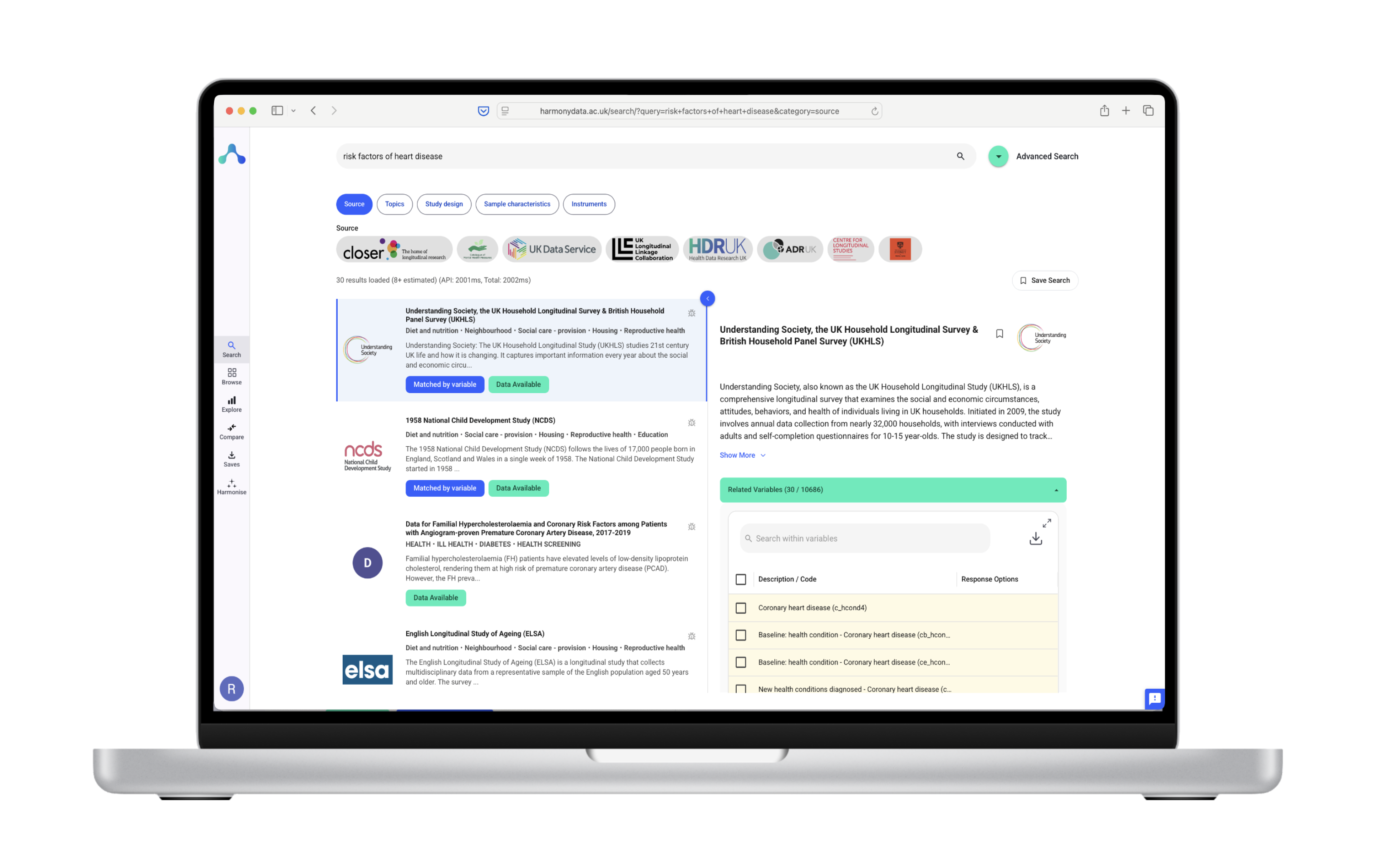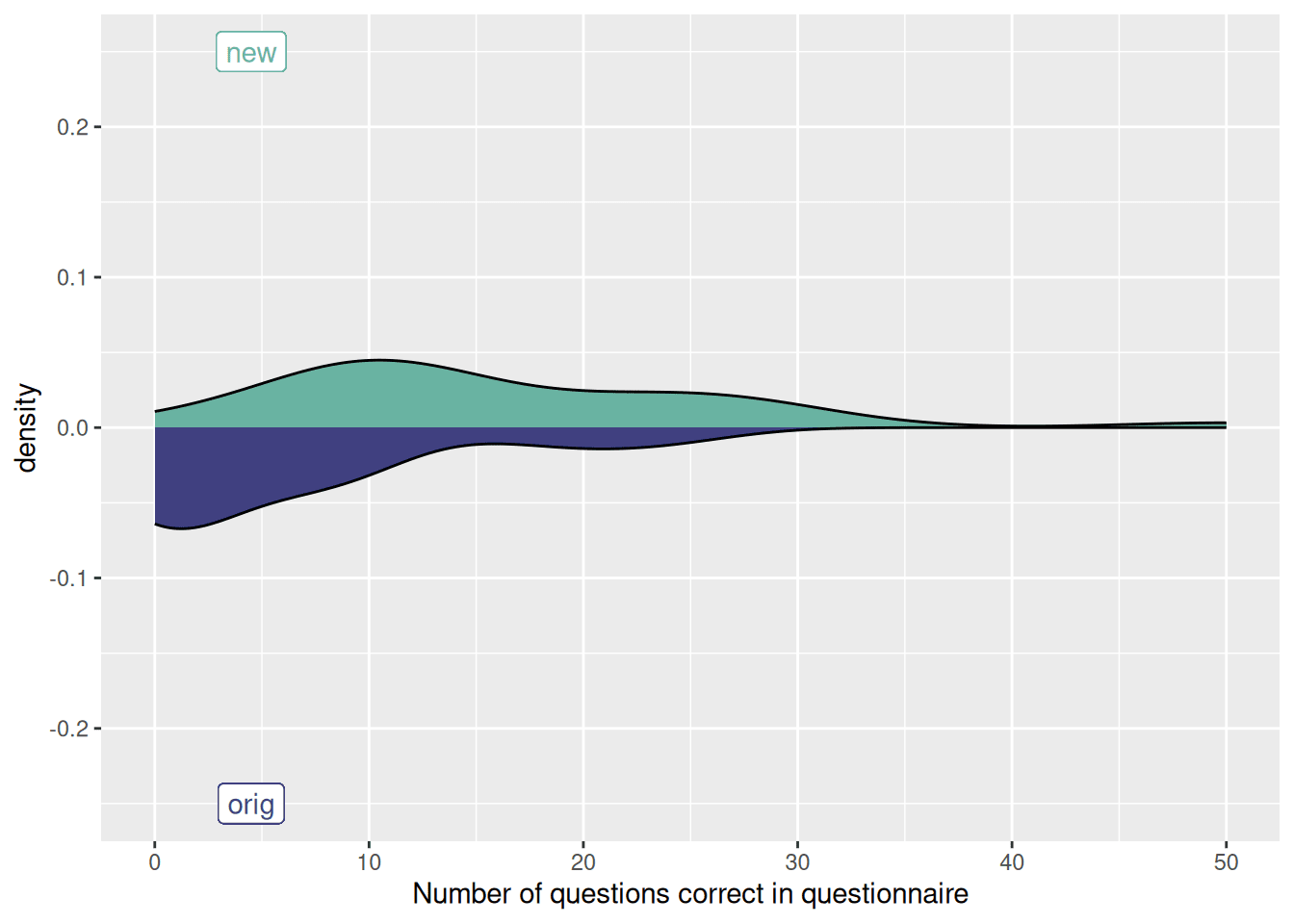
At Harmony, we’re working on a new feature aimed at making data discovery and exploration - through the use of meta-data - even more efficient and intuitive To ensure this feature addresses real needs, we’re conducting co-design sessions with researchers, data-managers and other users, allowing us to develop a tool that solves real-life user requirements.
The Co-Design Approach: Co-design allows us to build this feature with direct input from those who will use it most. Through these sessions, users and stakeholders participate in shaping the tool, providing detailed feedback, identifying challenges, and contributing their own insights. This process is collaborative by design, creating a feedback loop that helps us address pain points in data discovery and visualisation while ensuring usability.
What problem does Harmony Discovery solve? Researchers can struggle to find datasets and often need something specific, such as a longitudinal study measuring anxiety and household income. Existing repositories don’t always go into the details of which variables have been captured, and finding variables can be a difficult process with a basic keyword search. Harmony Discovery indexes studies, datasets, and variables using the same cutting-edge vector representation used in our harmonisation tool, so that a search for “anxiety” will return studies with the question items “I feel anxious”, “I often feel worried”, and even items in other languages. This is made possible with the latest developments in AI and large language models (LLMs), which allow us to index and retrieve items based on semantic content rather than just matching words.
Key Goals for the New Feature: While the feature is still evolving, our main objective is to understand how researchers search and discover research data and how Harmony can support the decision making process especially when trying to compare meta-data of large or complex datasets. From early feedback, we’ve noted specific needs for adaptability and efficiency in data discovery and comparison, and we’re integrating these priorities into the design of the tool.
Get Involved: If you’re a researcher or data manager interested in participating in our co-design workshops, we’d love to hear from you! Get in touch with us via email, you can also sign up to our Discord server and newsletter and follow us on LinkedIn to stay connected with the latest updates and community discussions.
Harmony Meta: https://harmonydata.ac.uk/search
Introducing Harmony Discovery: https://harmonydata.ac.uk/discovery/
Harmony is an open source tool for social science research.

